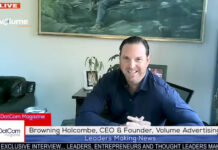Bartleby, the Scrivener, is a famous short story written by Herman Melville, first published in 1853. It remains one of Melville’s most celebrated works and is regarded as a significant piece in American literature. Bartleby, the titular character, is an enigmatic figure whose peculiar behavior and passive resistance have intrigued readers and literary scholars for generations. The story is set in a bustling Wall Street law office, where Bartleby is hired as a copyist, and it explores themes of alienation, individuality, and the complexities of human nature.
1. Bartleby’s Introduction: Bartleby, the central character of the story, is introduced as a new employee at a law office on Wall Street. The narrator, a lawyer who remains unnamed throughout the tale, hires Bartleby to assist him and his other scriveners in copying legal documents.
2. His Peculiar Response: Bartleby is initially a hardworking and efficient employee, diligently performing his copying tasks. However, when asked to review his work or undertake any additional duties, he consistently responds with the iconic phrase: “I would prefer not to.”
3. A Mystery Unfolds: The narrator becomes increasingly intrigued and disturbed by Bartleby’s peculiar refusal to comply with any requests. Despite attempts to understand or help him, Bartleby’s only reply remains, “I would prefer not to.” This mysterious resistance forms the crux of the story’s narrative.
4. The Office Dynamics: The story delves into the interactions and reactions of other employees in the office, who are perplexed and frustrated by Bartleby’s behavior. The scriveners, Turkey and Nippers, represent contrasting personalities, further highlighting Bartleby’s uniqueness.
5. Bartleby’s Isolation: As the story progresses, Bartleby becomes increasingly isolated, both physically and emotionally. He starts living in the office and seems detached from the world around him, contributing to the overarching theme of alienation.
6. The Narrator’s Guilt and Responsibility: The narrator, who prides himself on being kind and accommodating, wrestles with feelings of guilt and responsibility towards Bartleby. He tries various methods to resolve the situation but ultimately fails to understand or assist Bartleby fully.
7. Bartleby’s Past and Motivations: The story provides limited insights into Bartleby’s past and motivations, leaving readers to speculate about the reasons behind his passive resistance. This ambiguity adds to the story’s allure and leaves room for interpretation.
8. The Legal Setting: Melville uses the law office as a symbol of the rigid, dehumanizing nature of society. Bartleby’s refusal to conform reflects a broader commentary on the individual’s struggle against the oppressive structures of society.
9. The Final Act: The story reaches its climax when the narrator decides to relocate his office to escape Bartleby’s presence, leaving him behind. Over time, the office’s new occupants try to remove Bartleby from the premises, resulting in a tragic and poignant conclusion.
10. Legacy and Interpretation: Bartleby, the Scrivener, continues to be studied and analyzed by scholars, inspiring various interpretations about its themes and symbolism. The character of Bartleby has become an iconic representation of non-conformity and passive resistance.
Bartleby, the Scrivener, is a captivating and thought-provoking tale featuring the enigmatic character of Bartleby, whose passive resistance and peculiar nature challenge societal norms and prompt profound reflections on human behavior and individuality. The story’s enduring appeal lies in its exploration of themes such as alienation, guilt, and the complexities of the human psyche. Through Bartleby’s unique refusal to comply with societal expectations, Melville masterfully sheds light on the struggles of the individual in the face of oppressive structures, leaving an indelible mark on the literary landscape.
Bartleby, the Scrivener, is a captivating and thought-provoking tale featuring the enigmatic character of Bartleby, whose passive resistance and peculiar nature challenge societal norms and prompt profound reflections on human behavior and individuality. The story’s enduring appeal lies in its exploration of themes such as alienation, guilt, and the complexities of the human psyche. Through Bartleby’s unique refusal to comply with societal expectations, Melville masterfully sheds light on the struggles of the individual in the face of oppressive structures, leaving an indelible mark on the literary landscape.
Set in a bustling Wall Street law office, the story introduces Bartleby as a new employee hired by the unnamed narrator, a lawyer. Initially, Bartleby is a diligent and efficient copyist, but his character takes a perplexing turn when he starts responding to any request with the phrase: “I would prefer not to.” This enigmatic response bewilders both the narrator and the other employees, Turkey and Nippers, who represent contrasting personalities within the office.
As the plot unfolds, Bartleby’s resistance to conformity becomes more pronounced, and he withdraws further from the world around him. He begins living in the office, further accentuating his isolation and detachment. The narrator, who prides himself on his kindness and compassion, grapples with feelings of guilt and responsibility towards Bartleby. He tries various strategies to understand and help the enigmatic scrivener but remains unsuccessful in breaking through Bartleby’s passive wall.
The law office itself serves as a symbol of the rigid and dehumanizing structures of society, and Bartleby’s refusal to conform represents a broader commentary on the individual’s struggle against oppressive norms. As the narrator decides to move his office to escape Bartleby’s presence, the final act takes a tragic turn. The new occupants attempt to remove Bartleby from the premises, and his life spirals into despair, ultimately culminating in a heartrending conclusion.
Despite the limited insights provided into Bartleby’s past and motivations, the character’s ambiguity allows readers to project their interpretations onto his actions. This open-endedness has sparked numerous theories and discussions among literary scholars and enthusiasts, further cementing Bartleby’s place as an iconic figure in literature.
Over the years, Bartleby, the Scrivener, has left a lasting legacy, inspiring various adaptations, reinterpretations, and references in popular culture. Its exploration of individuality and the complexities of human nature continues to resonate with readers, making it a timeless piece of American literature.
In conclusion, Herman Melville’s Bartleby, the Scrivener, presents a thought-provoking and emotionally charged narrative centered around the enigmatic character of Bartleby. Through his passive resistance and refusal to conform, Bartleby challenges societal norms, inviting readers to reflect on themes of alienation, guilt, and the human condition. As one of Melville’s most celebrated works, the story remains an enduring masterpiece that continues to captivate and inspire generations of readers, leaving an indelible mark on the literary world.

















